How Nihal Sarin became an IM at 12 years and 8 months
A 12-year-old has already redefined what chess means in Kerala. When 3000 kids in his school meet him, they see in him a friend whom they can emulate. It is true that many of his classmates and school children have suddenly begun to play chess, some even competitively, after seeing their friend excel. The story is no different across Kerala. He walks to a planetarium to watch a space show, the kids there recognize him and take selfies. There are other stories online on Nihal already, talking about his initial development, etc., but none of them really tell how a child can play this well. Was he taught something different that made him better? This story will answer that question.
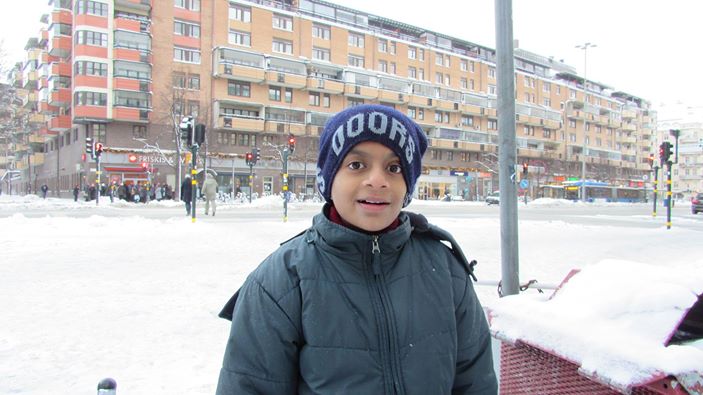
Twelve-year-old Sarin has completed the requirements to become India's latest International Master (IM). He did this at the Aeroflot Open 2017 in Moscow a few days back. It was a historic moment for the state of Kerala when he did it, when Nihal became only the fourth IM from the state. In the process, he also became the second youngest IM in Indian history and the third youngest in the world currently. He is also a former winner in the under-10 category and silver medallist in the under-12 category in the world championships.

While most of his numerous fans were already going gaga over his achievement, Nihal himself did not have the slightest idea of what he had done. He had fallen ill in the middle of the tournament but had managed to save many points. When he finished his final game and returned to his hotel room, his father casually remarked that he had gained the IM title. But young Nihal was too absorbed in analysing the game he had just finished and the possibilities that existed in it, all this in his head, of course. It was just another day at work for him.
A curious coincidence while he achieved these records is that the current world chess champion Magnus Carlsen had also become an International Master at the exact same age as Nihal - 12 years and eight months. And this is surely the sign of things to come.
Nihal's story is special. It would be obvious to anyone by now, but it is not just the astounding results he has achieved which make him unique. For a young chess player, life would mean balancing chess-training with studies in school. However, many parents in India decide for their child that it is better to stop attending school and focus full-time on chess. This is a traditional way of thinking which says that school and chess can't be carried on equal vigour.
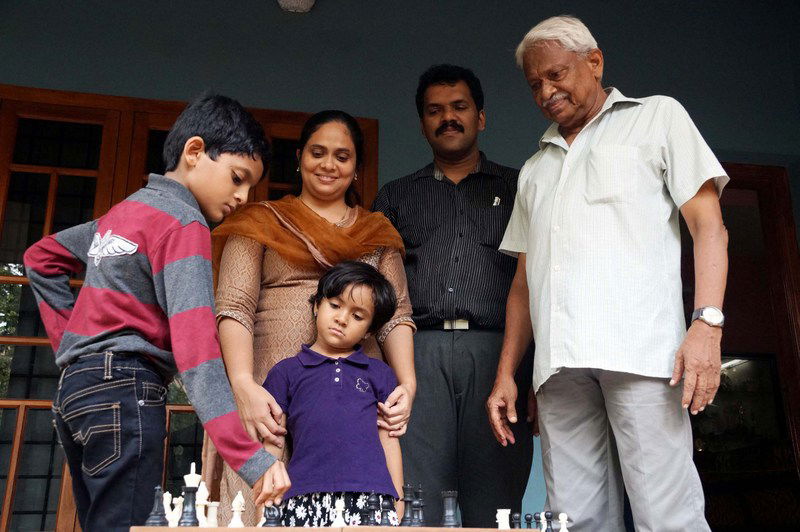
Nihal's approach to chess and life throws most of these 'traditional mindsets' out of the window. Born in Thrissur on 13 July 2004, Nihal has always been a restless child, but like any kid of his age, he was naturally inquisitive. His parents, Dr Sarin Abdulsalam, a dermatologist, and Dr Shijin, a psychiatrist, were posted in Kottayam where Nihal spent his early childhood. They were very careful while raising Nihal.
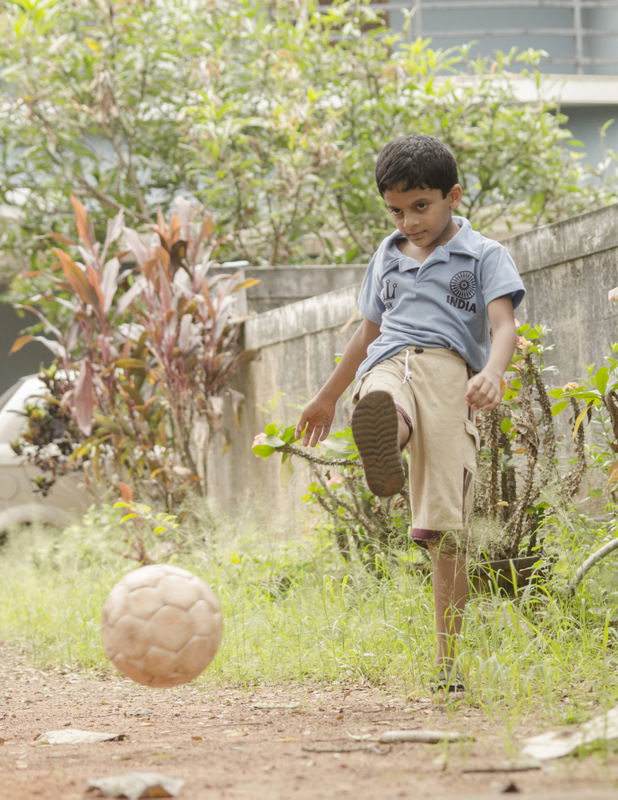
Dr Sarin says, "Nihal could recognise the flags of all the 190-odd countries by the age of three, could already speak fluently in English by the time he was in upper kindergarten, knew the multiplication tables till 16 by the time he turned six and enrolled into the first standard."
During the vacation before he was to join classes for the first standard, there was a lack of activity that could occupy Nihal all day. His grandfather AA Ummar then taught him to play chess and Nihal was hooked.
Luckily, for him, the school that he joined for his first standard classes - Excelsior English School - had a chess coach. His name was Mathew P Joseph Pottoore, and he noticed Nihal's interest in chess as well. After the kids returned home, Nihal would drag his father to Pottoore's house so that he could play chess with his teacher. Around this time, Nihal began to compete in tournaments and there was nothing remarkable, because a number of his peers were ahead of him. However, Pottoore instilled the right attitude in Nihal. Instead of making his student dependent on him, Pottoore made Nihal self-dependent.
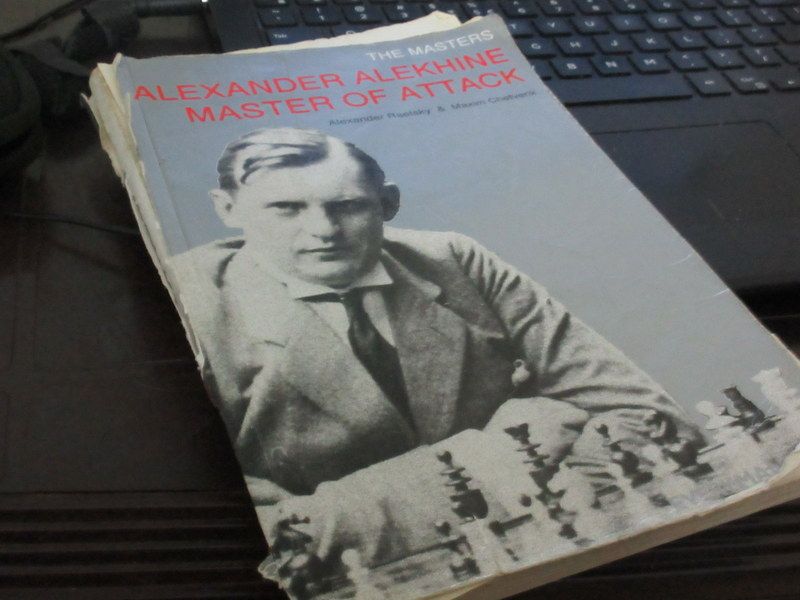
Nihal was not a big fan of being instructed how to play, but if you spread a chessboard in front of him and place a chess clock, at any moment of the day, he would be ready to play endlessly. Besides that, he loves chess books. Nihal reads chess books like a person would read a novel. Note that he does not study them seriously - he simply reads them. And thanks to his phenomenal memory, he remembers what he reads. He will just pick up a book and read moves and variations from it as if he were reading sentences, telling him a story. He does all this at breakneck speed while sitting on the sofa, or just lying on the bed.
Results-wise, the turning point came when Nihal moved back to Thrissur. It was due to his parents' transfer to the idyllic town in the heart of Kerala that Nihal had to join Devamatha CMI Public School. However, in Thrissur, Nihal did not have anything remotely similar to a chess culture, unlike say, in Chennai, where such a culture is deep-rooted. Nihal's chess life was developing sedately, when he came in touch with EP Nirmal, his school's chess coach.
This was the beginning of a friendship that continues to blossom even today. In 2012, Nirmal began to work with Nihal, improving his openings, sharpening his calculations - all this by playing tons of games with him. "I had noticed while growing up as a player that most coaches would impose their wills on the child's character and suppress their natural game. They would force the student to follow a set of rules, or force him/her to play in a particular way," laments Nirmal. He adds, "When they are very young, it is the phase where their intuition is developing. A coach must teach the student, but the interference should be minimal."
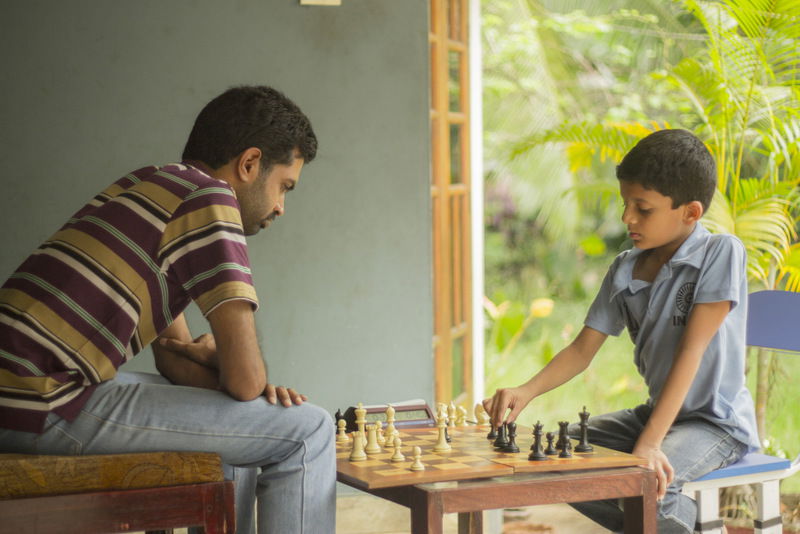
Nirmal works with Nihal on the department Nihal wants to study on a given day, based on his mood, and as a rule, interferes only when necessary. "His love for the game is deep. He always wants to work on some area of chess at any given time! He is like water. My job has been to remove the blockades and let him flow."
The other important person to guide Nihal has been Ukrainian Grand Master Dimitri Komarov, who in his heydays had beaten a young Vladimir Kramnik (who later became the 14th world chess champion), and several strong Grand Masters. Nihal's work with Komarov developed into a fruitful 'working relationship' with Komarov explaining Nihal the positions where he needs help, thus removing obstacles from his path.
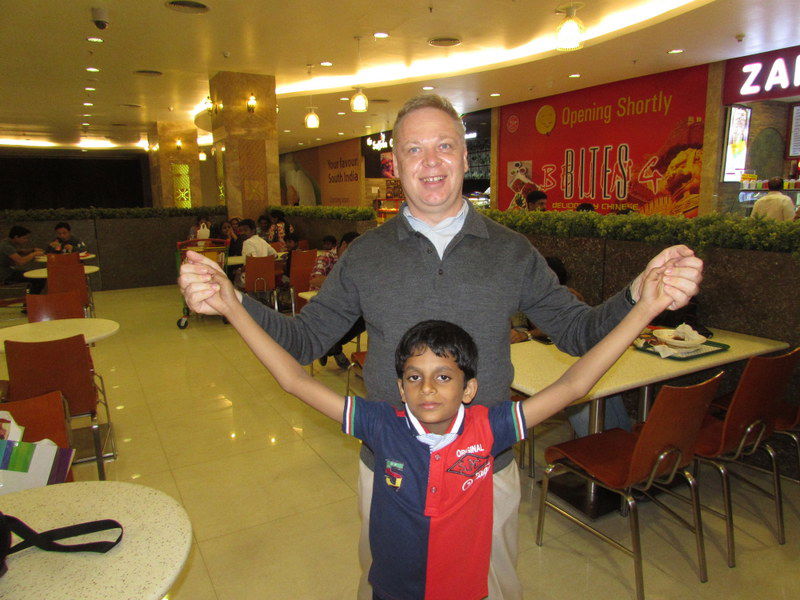
The results of this unique approach are there for everybody to see. In four years since 2012, Nihal rose from a lowly 1,200 Elo player to India's latest International Master. Surprisingly, none of his skills as a chess player is manufactured by any of his coaches. He calculates variations out of his inborn curiousity - he follows it wherever it leads him. He decides his moves, he works on it, and he plays whatever he had decided to play.
In the middle of February 2017, Nihal probably played the biggest opponent of his life. He crossed swords with the world champion Carlsen himself. The game took place online when the Norway Gnomes took on the Delhi Dynamites in the Professional Rapid Online Chess League, a 15-minute-a-side team championship.
It was a tense affair where the champion tricked Nihal into a bad position, which eventually was completely lost for Nihal. But, Nihal being Nihal, kept defending like his life depended on it. He dragged Carlsen into an equal position where a few accurate moves would mean the game would end in a draw! Alas, Nihal was short on time, and he missed his chance. Carlsen won, leaving Nihal seething in agony. His own intense desire to perform at his peak is what pushes him to play good chess. The best way to forget past losses is to fight new battles - he finished with a draw and a win against strong opponents.
[Site "chess.com INT"]
[Date "2017.02.15"]
[Round "6"]
[White "Carlsen, Magnus"]
[Black "Nihal, Sarin"]
[Result "1-0"]
[ECO "B12"]
[WhiteElo "2840"]
[BlackElo "2340"]
[PlyCount "131"]
[EventDate "2017.01.11"]
[EventType "team-swiss (rapid)"]
[EventRounds "7"]
[EventCountry "USA"]
[SourceTitle "Mega2017 Update 18"]
[Source "Chessbase"]
[SourceDate "2017.02.24"]
[SourceVersion "1"]
[SourceVersionDate "2017.02.24"]
[SourceQuality "1"]
[WhiteTeam "Norway Gnomes"]
[BlackTeam "Delhi Dynamite"]
[WhiteTeamCountry "NOR"]
[BlackTeamCountry "IND"]
9. Bf2 Rc8 10. Nb3 Be4 11. Nfd2 Bh7 12. Be2 Nf5 13. O-O Be7 14. Nf3 a6 15. g4
Nh4 16. Bxh4 Bxh4 17. Bd3 Bxd3 18. Qxd3 c5 19. f5 c4 20. Qb1 O-O 21. Nbd2 Bg5
22. Qe1 Re8 23. Qg3 Bxd2 24. Nxd2 f6 25. Rae1 Qb6 26. Rf2 Rf8 27. Nf3 fxe5 28.
Nxe5 Nf6 29. g5 hxg5 30. Qxg5 exf5 31. Rg2 Rc7 32. Ng6 Ne4 33. Qh5 Re8 34. Rf1
Nf6 35. Qh8+ Kf7 36. Ne5+ Ke7 37. Qxg7+ Kd8 38. Nf7+ Kc8 39. Rxf5 Re1+ 40. Rf1
Rxf1+ 41. Kxf1 Kb8 42. Qf8+ Ka7 43. Nd6 Ne4 44. Nxe4 dxe4 45. Qf4 Rh7 46. Rf2
Qe6 47. Ke1 e3 48. Re2 Rh3 49. Qe5 Qg4 50. Rxe3 Qg1+ 51. Kd2 Rxh2+ 52. Re2
Rxe2+ 53. Qxe2 Qb1 54. Ke3 Qxa2 55. d5 Qb3 56. Kf4 Qb6 57. Qe3 Qxe3+ 58. Kxe3
b5 59. Kd4 Kb6 60. Ke5 Kc7 61. Ke6 Kd8 62. Kd6 a5 63. Kc5 b4 64. cxb4 c3 65.
bxc3 a4 66. Kc4 1-0
Grand Master Parimarjan Negi, the world's second youngest Grand Master thinks Nihal is mature beyond his years. Negi writes on Worldchess, "Nihal shows an intuitive sense that takes many years to develop." While analysing one of his games for the Worldchess website, he remarked about a certain move that was very creative: "Nihal shows great intuition to realise that securing the e4 square for his knight would prove crucial - after all, there are too many options to calculate these lines precisely."
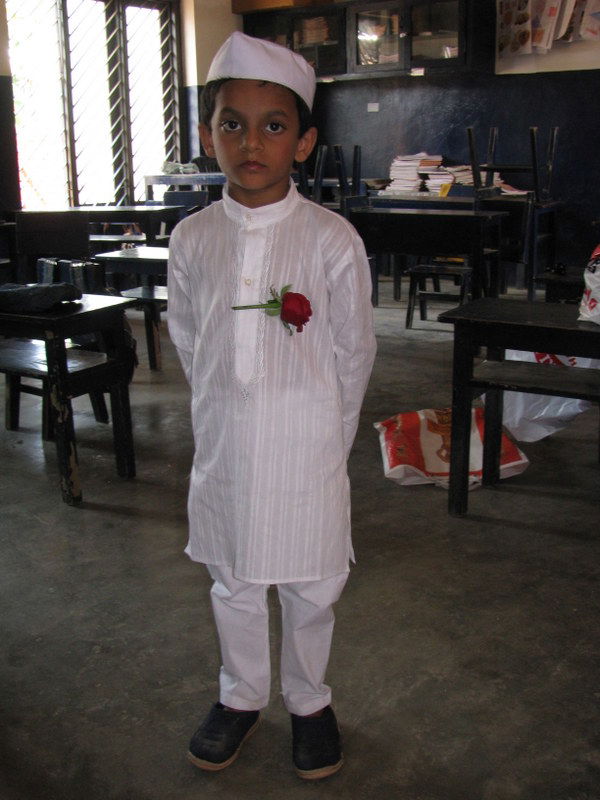
What the future beholds for chess's very own 'Little Master' (like Sachin Tendulkar used to be in cricket) from Thrissur depends on what the Indian and the Keralite community decides for him. Speaking to Sportstarlive, former National Blitz Chess Champion, International Master K Rathnakaran, said, "Players like me have suffered because we didn't get sponsors when we needed them most. Nihal is easily the most gifted chess player produced by Kerala ever. He has a phenomenal memory and he has a clear idea about every move he makes, which you normally won't find in players of his age."
Kerala has only four International Masters and two Grand Masters. But the state has suddenly begun to take interest in chess. The people are observing what a little boy from 'God's Own Country' is doing at the international stage and have begun to see value in playing this sport.
It is our duty to support Nihal and help him rise to the top of the chess world. We can do that by making sure the world knows about him, and he gets the sponsors that help him play stronger tournaments. This simple act of support could give Indians their next world chess champion.
 Firstpost and ChessBase India have collaborated to bring you extensive and detailed coverage of the chess scene in India and internationally.
Firstpost and ChessBase India have collaborated to bring you extensive and detailed coverage of the chess scene in India and internationally.
This article was first published on the Firstpost website on 10th March 2017. You can read the entire article here.
Wikipedia: https://en.wikipedia.org/wiki/Nihal_Sarin
Website: www.nihalsarin.in

